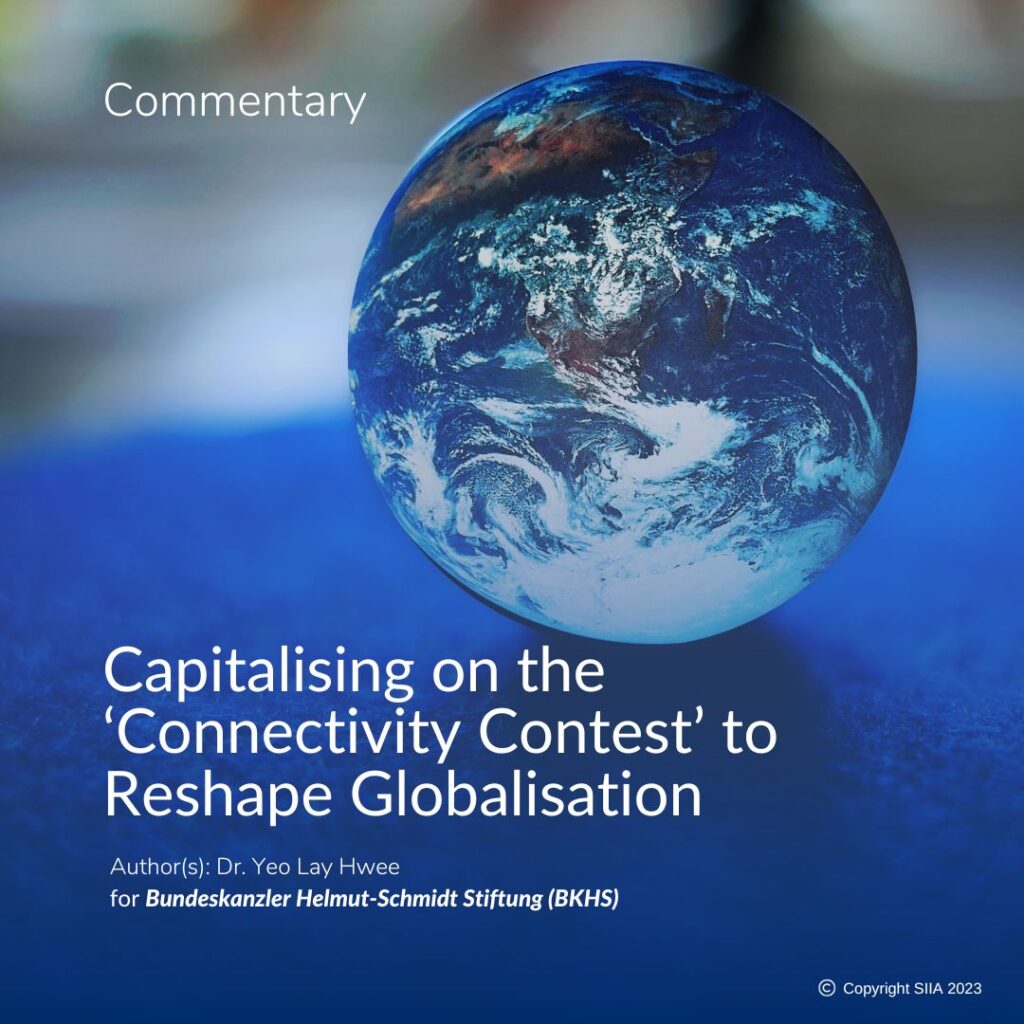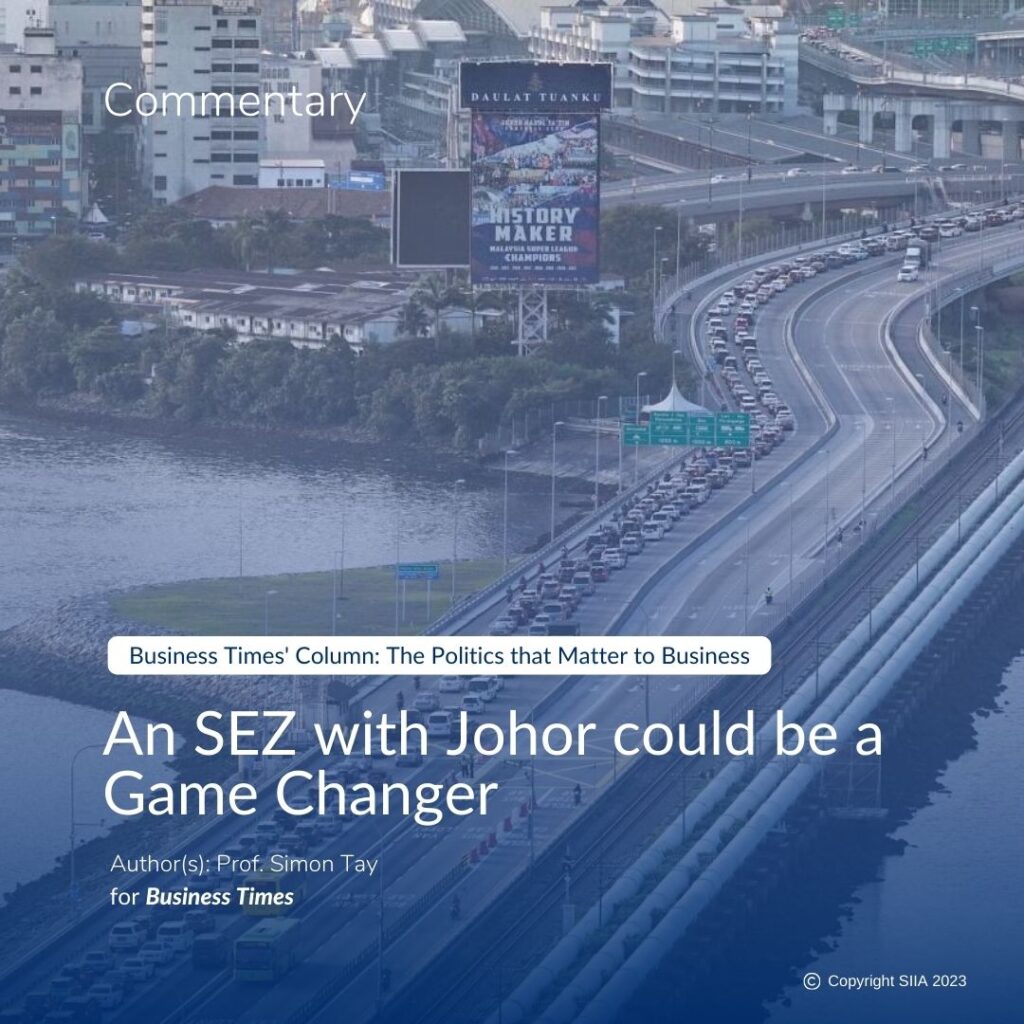COMMENT: While international partners can try to foster dialogue between the domestic players in Myanmar, the complex situation ultimately needs to be resolved domestically.
Simon Tay, Chairman at the Singapore Institute of International Affairs, thinks that a complete dissolution of the military in Myanmar may not be ideal as the military is still an important stabilising force in the country.
Tay, who is also currently a tenured Associate Professor teaching international law at the National University of Singapore’s Faculty of Law, is the author of the book, Shadows Across the Golden Land: Myanmar’s Opening, Foreign Influence and Investment.
By Simon Tay
For Mothership
As of Mar. 23, the Assistance Association for Political Prisoners has reported that the death toll in Myanmar resulting from its ongoing political turmoil has exceeded 260.
The devastating violence has caused the international community to call for restraint and Singapore has referred to the military’s atrocities against civilians as “inexcusable in all circumstances” and of “grave concern” to Singapore and the region.
Since the military action on Feb. 1, the situation has grown increasingly tense, with the military taking aggressive action to consolidate its grip on power.
Fear that the spiral of violence will deepen is not unfounded. Neither side is likely to back down, even as the death toll rises and an economic disaster looms large.
Such events so close to us in Singapore demand our attention and concern. This is especially as Singapore and Myanmar have long-standing ties between people, businesses and government.
The solution for the situation however lies beyond what Singapore can do, as a small state.
Any solution depends on the acceptance by the people and National League for Democracy (NLD) leadership on one hand, and the Tatmadaw on the other.
Yet what we can and should observe is what Singapore and others in the region do in response to the crisis. How can we possibly help the process?
Singapore’s response a slight deviation from the past
First, we should recognise that Singapore has responded in a new way.
In the past, Singapore recognised the Tatmadaw’s rule in Myanmar and also welcomed the country’s steps along their “Road to Democracy”, especially after the 2010 elections.
But this time, the situation is different.
The NLD and its leader Aung San Suu Kyi clearly won the 2015 elections. International observers also have reported that while imperfect, the 2020 elections again returned them to power by a wide margin.
There are, therefore, questions about the legality and legitimacy of the military intervention to take over power, notwithstanding claims that the military’s actions are in accordance with the 2008 Constitution as a “State of Emergency”.
Given these questions, there are many who have been cautious against recognising the military in power as the legitimate Myanmar government.
Singapore’s Foreign Minister, Vivian Balakrishnan, and some others in Asean have met with Myanmar’s military representative, but not referred to him as “foreign minister”. Singaporean leaders have also continued to refer to Aung San Suu Kyi by her government title of “State Counsellor”.
These come on top of clear criticism against the deadly violence used against unarmed civilians.
Despite Singapore being Myanmar’s largest investor with US$24.1 billion (S$32.4 billion) in approved foreign capital, Singapore businesses are not carrying on as usual – as the military tried to assert when they first took power.
Indeed, rather than business as usual, the Singapore government has advised Singaporeans currently in Myanmar to consider leaving as soon as they can by commercial means while it is still possible to do so.
What’s Asean’s role in this?
Some others in the region have similarly spoken up, notably Indonesia and Malaysia. But there are others who are more passive.
There can be no outright meddling by Asean in accordance with its principle of non-interference but the region as a whole has urged for dialogue.
Asean’s role to constructively engage is crucial given the interconnectedness and interdependencies of the region. This is both among the Asean members and also with key partners – including the USA, Europe and Japan which have all condemned the military intervention.
Overly simplistic to believe China is backing the Tatmadaw completely
Some suggest that China is backing the generals.
Certainly, China has considerable leverage in the country given its ties, in business and infrastructure investment, as well as on political and security issues.
But it is too simplistic to believe China is wholly comfortable with the Tatmadaw and vice-versa.
In recent years, China actively fostered a closer relationship with the NLD. Rather than picking one side or another, China’s most fundamental interests are closely tied to Myanmar’s stability, whoever is in charge.
This aspect was reinforced by recent arson attacks on Chinese factories, when Beijing was seen to be accepting of the military action as a fait accompli.
China has since strengthened its tone.
On March 10, China did not veto a United Nations Security Council statement urging the reversal of the military takeover and condemning the military’s use of violence against civilians.
Thereafter, its ambassador to the United Nations Zhang Jun also emphasised “de-escalation”, “diplomacy” and “dialogue”.
Limit to what foreign actors can do
Locals and some observers have urged the international community and corporates to exert more pressure, and many in Myanmar see international actors as a possible way out, in returning the country to what it had been before.
The West has imposed sanctions against some of the military commanders and military-held companies and this is a strategic move. Broader sanctions like those used in the past will only cripple the private sector and ultimately, do more harm than good for civilians.
But whether broad or targeted, we must recognise that sanctions by the West will not cripple and deter the Tatmadaw.
There are limits as to how much external pressure should and can be used and as Balakrishnan notes, “The keys (to a solution) ultimately lie within Myanmar.”
Interests and Attitudes Within Myanmar
The military is deeply entrenched in Myanmar, adopting a belief system out of our range of comprehension as Singaporeans.
While election fraud may have been cited as the trigger for the military takeover, a deeper reason is the Tatmadaw’s fear that with the NLD’s big win in the 2020 elections, they may be relegated as an irrelevant and spent force.
This is especially since Aung San Suu Kyi and her party have repeatedly called for a rewrite of the constitution. Embedded within is a bargain that creates a de facto, partial power-sharing agreement between the civil government and the Tatmadaw.
Yet emerging circumstances undercut these guarantees.
This is unacceptable to the military, who has always seen themselves as holding the country together, and as the ones who gave the country its “Roadmap to Democracy”.
Complete dissolution of military not ideal
Any hope that the military will back down appears dim.
In any event, a complete dissolution of the military may not necessarily be ideal as the military is still an important stabilising force in a country where armed ethnic organisations have waged on-and-off wars for decades in the border areas.
Some compromise would be the answer which would promise the greatest stability.
Yet, a compromise does not appear likely in the immediate term. The military still believes they can use force to quell the protests, but street protestors are not inclined to back down.
While some have criticised the Civil Disobedience Movement for lacking in strategy, it is emerging as a weapon to be reckoned with. This is a force of resistance that police brutality cannot stop, especially with the broad support of major unions.
Myanmar’s transition to democracy is complex and clearly far from complete. With the current situation, there are many moving parts, with no end in sight or any certain outcome.
International partners can and should foster dialogue and mediate but the fraught and complex situation essentially needs to be resolved domestically.
Source: Mothership. Reprinted with permission.




